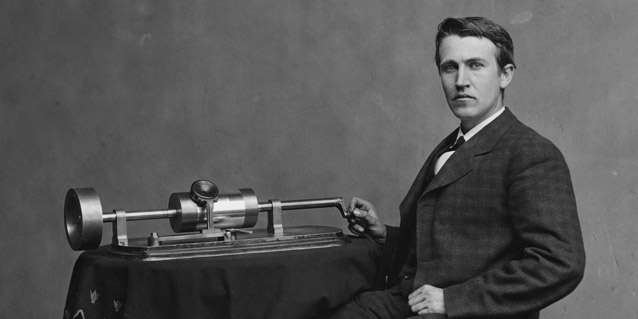EMA License: 9/21140 | Open 9am - 6pm | Monday to Saturday | Call 84193988

Did Thomas Edison Really Invent the Light Bulb?
As a great American inventor, Thomas Edison is known for a great many inventions. Without his genius and innovations, the world may still be stuck in an age before modernity. Thanks to Edison, people all over the world can enjoy a comfortable way of life using electricity to power their homes, lights, devices, automobiles, and more.
And speaking of lights, one of the most iconic inventions of modern history is, of course, the light bulb. The little glass electricity conductor that allows people to turn on their lamps and affix headlights to their cars. While society most often attributes the invention of the light bulb to Thomas Edison himself, history reveals that he wasn’t actually the one to invent it.
At least, not fully.
So, who actually invented the light bulb?
How Edison is Responsible
Thomas Edison did, of course, contribute many revolutionary ideas and practices regarding the use of electricity. However, he cannot be given all of the credit for the invention of the light bulb. In fact, he may have even stolen some of the ideas for the light bulb from other inventors.
Edison made the light bulb famous. He may have perfected incandescent lights in certain ways. However, he certainly was not the sole creator of the product, nor did he come up with the idea in the first place. This still begs the question of who was the true inventor, and why the credit to its invention is significant for the understanding of modern history.
Who Invented the Light Bulb?
The actual credit for the invention of the light bulb can be attributed to a group of inventors, rather than a sole person. Edison created the first research and development team in the United States, in Menlo Park, New Jersey. His team consisted of a group of like-minded individuals and apprentices, who performed tasks based on research into the ways electricity can be used as a form of electricity. Together they invented the incandescent light bulb, which is arguably one of the most influential inventions to spur modern America.
Why Did Edison Take Credit?
America in the 19th century was an incredibly competitive space, one that urged inventors to patent their inventions before someone else can take the credit. Edison was keen on maintaining his self-image as the most influential developer in the country. This is an image he kept up quite successfully, since many Americans considered him to be an actual wizard.
Despite his ego, however, the true reason he took credit for the invention of the light bulb was due to the fact that it was much easier to obtain and control the patent for the device. Since the light bulb was invented by the group, and he was the owner of that group, he is the one who had to register and approve the patent system. Getting control of the patent meant having a hand in the market share, which is very important for taking credit for one’s own invention.
Why is the Electric Light Bulb So Significant?
The invention of the incandescent light bulb can be said to be one of the most important productions of modern history, and the one true invention that sparked an era of innovation and urban development. While the light bulb certainly did contribute to all of these things, it was not the sole product responsible for the age of invention.
The electric light bulb invention is significant because it is a testament to the inventive culture that existed in the 19th century. Thomas Edison’s success was a result of the culture he was born into. His ability to create a team of like-minded inventors and geniuses really spurred his reputation as the father of modern invention. And while most inventions, such as the light bulb, were a product of many, rather than just the sole creation of an individual, they might still be credited to a more popular name due to the legacy and understanding of that time period.
If you're looking for light installation service Singapore to spice up your living spaces, contact our pros today and we'll get the job done right, affordably.